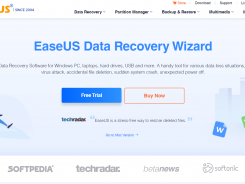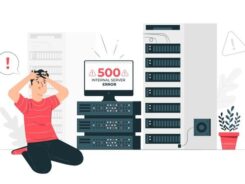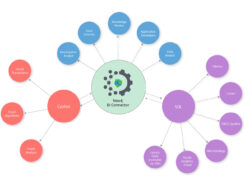Working remotely is gaining a lot of popularity in the modern business world. More and more managers rely on remote teams to get the job done. Remote working is convenient, saves time, reduces travel costs and other associated costs. Remote team members tend to be happier, more efficient, and more dependable than showing up to work every day. Businesses gain access to global talent. However, there is a dark side.
Protecting Your Assets While Remote Working
Remote working is one of the manifestations of the digital age. Theoretically, you don’t need a brick and mortar office space anymore. You can hire remote personnel for almost every business function, with software to support their tasks. When I work remotely, I just need to be somewhere with an internet connection. Being a Spectrum packages subscriber, I have access to thousands of Wi-Fi hotspots across the country. A computer and Wi-Fi may be all you need.
However, while remote working is popular, and has proven to be beneficial to team efficiency and morale, there are risks. Cybercrime is a growing problem in the digital age. It costs billions of dollars in losses to companies across the globe. Cyberattacks usually originate over the internet and can target any business at any time. If you’re working remotely over a home or public Wi-Fi connection, you may be at a greater risk.
Cybercrime is a real threat that can cost businesses both in terms of money as well as reputation. Especially if the business collects and stores sensitive data, which many modern businesses do. Luckily, there are several steps you can take to lessen the probability of this risk. This blog explores the following ways to protect your digital assets while working remotely:
- Use a Secured Wi-Fi Network
- Strong Password Protection
- Regular Backups
- Use VPNs
- Encrypt Your Computer
Let’s examine these in more detail below.
Use a Secured Wi-Fi Network
One of the worst mistakes you can make while working remotely is to use an unsecured Wi-Fi network. Wherever possible, you should avoid connecting to an unsecured public Wi-Fi network like at your local coffee shop. If they know-how, anyone connected to the same network can gain access to your computer and data. If you have a home network, you should password protect it and hide it using your router’s settings. Remember to use strong alphanumeric passwords, and be sure to run regular antivirus and malware scans.
Strong Password Protection
Strong passwords make hacking your computer or accounts that much more difficult for your hackers. Most hackers use a form of cyberattack called brute force to gain access to data and computers. This involves a computer rapidly trying all permutations and combinations of the alphabet and numbers on a standard keyboard.
There are billions of combinations of alphanumeric characters, but a dedicated brute force attack can guess the right one. You can make this job much more difficult by using strong and unique passwords on all your devices and files. A strong password should have at least eight characters, upper and lower case use, numbers, and even symbols. The more complex you make it, the harder it is for a brute force attack to crack it.
Regular Backups
Cyberattacks often target one of the most valuable assets in the digital world: business data. A cyberattack could involve malware maliciously deleting all your data and business intelligence. Or, more likely, it could involve ransomware which holds your data hostage unless you pay the hackers significant money. Both are bad for business, especially when you have sensitive data on your customers as well.
One way to keep your data safe is to back up your data regularly. Periodic backups ensure you have a separate, up to date store of all your business data. You could backup your data using an external hard drive. You can also use the power of the cloud to store your data remotely. Finally, you can always create an off-site backup to ensure your data is safe from hardware malfunctions, fire, etc.
Use VPNs
VPN software can be very useful when you are working remotely. The virtual proxy network masks and encrypts your computer’s identity. This helps to keep your data secure and private. VPN’s even make an unsecured public network much safer. Connecting to a VPN while working will make it impossible for ISPs, advertisers, and of course hackers from tracking you.
Encrypt Your Computer
Encrypting your data is one of the best steps you can take to guard against your computer being stolen. You should also encrypt your physical backups in case someone steals your backup drives. Encrypting sensitive information will make it almost impossible for thieves to gain access to it. Both Mac and Windows computers come with helpful encryption tools that can help you protect your digital assets against physical theft. The digital landscape can be a very scary place, with criminals waiting at every turn. However, following the steps above has helped me stay safe from cyberattacks. I have worked with different clients as a freelancer over the last many years, using nothing but my Mac and my trusty Spectrum internet packages. A little basic precaution goes a long way to keeping you safe. Don’t be lazy, otherwise, you may end up a victim of cybercrime.

















































































